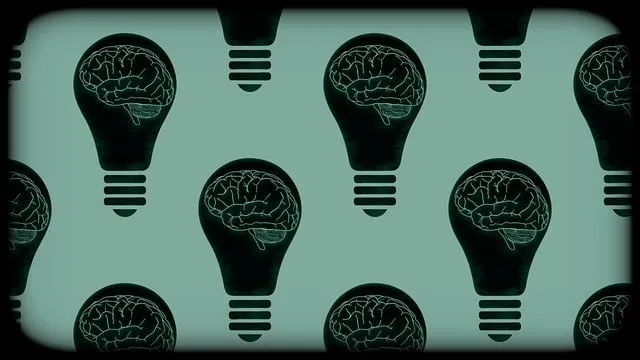In today's digital age, mental wellness apps are gaining popularity in areas like Lone Tree, as evidenced by positive reviews of the local Kaiser Permanente mental health center. These apps offer convenient, personalized guidance for managing stress, anxiety, and other common mental health challenges, leveraging technology to bridge the gap between traditional therapy and individual well-being. Features such as mood tracking, mindfulness exercises, and community support groups are key components, along with evidence-based practices like Compassion Cultivation Practices (CCP). The increasing demand highlights the need for user-friendly interfaces and innovative solutions targeting specific mental health needs, with AI and VR technologies poised to revolutionize future app development based on feedback and clinical outcomes.
In today’s digital age, mental wellness apps are becoming essential tools for managing and improving psychological well-being. This article delves into the growing importance of these applications, supported by a case study of Kaiser Permanente Mental Health Center’s successful initiatives. We explore local preferences in Lone Tree, highlighting key features that define effective mental health apps. Furthermore, we discuss the development process and emerging trends shaping the future of mental health technology, offering insights valuable to both professionals and app enthusiasts.
- Understanding the Need for Mental Wellness Apps
- Kaiser Permanente Mental Health Center Reviews: A Case Study
- Lone Tree: Exploring Local Mental Health App Preferences
- Key Features of Effective Mental Wellness Apps
- Development Process and Future Trends in Mental Health Technology
Understanding the Need for Mental Wellness Apps

In today’s fast-paced world, mental wellness is a growing concern, leading many to seek accessible solutions beyond traditional therapy settings. This need is especially evident in areas like Lone Tree, where Kaiser Permanente mental health center reviews highlight the demand for convenient and effective support. Mental wellness apps have emerged as a game-changer, offering personalized guidance and resources directly to users’ fingertips. These digital tools cater to a wide range of needs, from providing mental health education programs design tailored for specific issues to offering crisis intervention guidance during urgent situations.
By leveraging technology, mental wellness apps bridge the gap between professional care and personal well-being. They empower individuals to take proactive steps towards managing stress, anxiety, depression, and other common mental health challenges. With features like mood tracking, meditation guides, and access to online therapists, these apps are transforming the way we approach mental health support, making it more inclusive and accessible than ever before.
Kaiser Permanente Mental Health Center Reviews: A Case Study

The Kaiser Permanente Mental Health Center in Lone Tree has garnered significant attention through positive reviews, highlighting its commitment to innovative and holistic mental wellness solutions. These evaluations underscore the center’s effectiveness in fostering emotional healing processes among patients. By integrating various therapeutic approaches, the center promotes resilience building, a crucial aspect of navigating today’s stressful landscape.
The facility’s reputation for success in burnout prevention is evident from patient narratives and clinical outcomes. This case study serves as a testament to how modern mental health services can transform lives by addressing core emotional needs. The reviews also reflect the center’s ability to create a safe, supportive environment conducive to personal growth and recovery.
Lone Tree: Exploring Local Mental Health App Preferences

In Lone Tree, exploring local preferences for mental health apps reveals a growing demand for accessible and personalized well-being tools. Many residents seek solutions that integrate seamlessly into their daily lives, offering discreet yet effective strategies to manage stress and enhance emotional resilience. The Kaiser Permanente mental health center reviews in the area consistently highlight the need for user-friendly interfaces and evidence-based practices within these applications.
This trend underscores the importance of designing mental health apps that cater to diverse needs, from improving emotional intelligence to fostering community engagement through support groups. Incorporating features like mood tracking, mindfulness exercises, and peer mentoring can significantly contribute to the success of such apps in Lone Tree and beyond. A well-designed app that leverages Community Outreach Program Implementation and Mental Health Education Programs Design can play a pivotal role in breaking down barriers to care and promoting mental wellness on a local level.
Key Features of Effective Mental Wellness Apps

Effective mental wellness apps share several key features that contribute to their success and positive impact on users’ well-being. One notable aspect is the integration of evidence-based practices, such as Compassion Cultivation Practices (CCP), which have gained recognition from leading health centers like the Kaiser Permanente mental health center in Lone Tree. These apps often include guided meditations, mindfulness exercises, and cognitive-behavioral techniques to help individuals manage stress, anxiety, and other common mental health concerns.
Another crucial feature is the emphasis on personalized experiences. Mental wellness apps that consider individual needs and preferences can significantly enhance user engagement. Incorporating features like customizable meditation playlists, adaptive breathing exercises tailored to users’ responses, and progress-tracking tools allows for a more meaningful interaction. Additionally, public awareness campaigns development within these apps can foster a sense of community and encourage open conversations about mental health, contributing to Anxiety Relief and overall wellness.
Development Process and Future Trends in Mental Health Technology

The development process of mental wellness apps involves a meticulous blend of design, technology, and understanding human behavior. It begins with identifying specific needs within the mental health landscape, such as stress management or communication strategies for better patient-caregiver interactions. For instance, a review of Kaiser Permanente mental health centers in Lone Tree could highlight common challenges, like accessibility barriers or lack of specialized services, which app developers can then address.
Future trends in mental health technology suggest an increased integration of artificial intelligence (AI) and virtual reality (VR) for personalized therapy sessions. AI-driven apps can offer tailored mood management techniques based on user data, while VR can create immersive environments to facilitate exposure therapy. Additionally, public awareness campaigns development through these platforms could help destigmatize mental illness, encouraging more people to seek support. These innovations, combined with continuous user feedback and evidence-based practices, will shape the evolution of mental wellness apps, making them increasingly effective and accessible tools for improving global mental health outcomes.
Mental wellness apps are transforming access to care, as evidenced by the Kaiser Permanente mental health center reviews and Lone Tree’s local preferences. By incorporating key features identified in effective apps, developers can create tools that enhance user experiences and promote positive mental health outcomes. As technology advances, the development process will continue to evolve, driving future trends in mental health technology that promise even greater accessibility and effectiveness.






